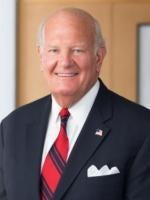Having granted a Writ of Certiorari to review the decision of the United States Circuit Court of Appeals for the Ninth Circuit (the “Ninth Circuit”) in Amalgamated Bank et al v. Facebook, Inc. et al (In re Facebook, Inc. Securities Litigation), 87 F.4th 934 (9th Cir. 2023) (“Facebook”)[i], and having heard oral argument by the parties and amici curiae, on November 22, 2024 the United States Supreme Court issued an unusual decision — surprising to some but perhaps not to others. The Court dismissed the case, stating only that the Writ of Certiorari had been “improvidently granted”. (604 U.S. 4 (2024)
Facebook involved, among other things, the question of whether the discussion of a risk can be misleading if it does not disclose previous occurrences of that risk or of events that increase the probability of that risk. Facebook did not make such disclosure, and the Ninth Circuit held that the plaintiffs had adequately pleaded a cause of action under Section 10(b) of the Securities Exchange Act of 1934 (the “1934 Act”) and Rule 10b-5(b) thereunder on the grounds that the omission of such information rendered its risk discussion misleading. Facebook asked the Supreme Court to review the judgment of the Ninth Circuit on the following somewhat oddly posed question:
Are risk disclosures false or misleading when they do not disclose that a risk has materialized in the past, even if that past event presents no known risk of ongoing or future business harm?
A similar, although not identical, question was involved in the Ninth Circuit’s previous decision in Rhode Island v. Alphabet, Inc. (In re Alphabet, Inc. Securities Litigation), 1 F.4th 687 (9th Cir. 2021) (“Alphabet”). Interestingly, following the decision of the Ninth Circuit, the Supreme Court denied Alphabet’s Petition for a Writ of Certiorari.
The clear-cut answer to the question raised in both Alphabet and Facebook seems to be that, sometimes, depending on the circumstances and the language of the risk factor, some historical information may be necessary to qualify the discussion of a risk, at least somewhere in the disclosure document. Analysis of both Alphabet and Facebook is necessary to attempt an understanding of this issue under the law of the Ninth Circuit and, indeed, after the non-decision of the Supreme Court in Facebook, presumably the law of the land. While these cases raised a multitude of collateral issues, especially in the lower courts, this note will focus on the specific question directed to the Supreme Court.
Click here to view the full article.
[i] In October 2021, Facebook, Inc., the parent company of Facebook, changed its name to Meta Platforms, Inc. However, the defendant is referred to as “Facebook” throughout the litigation.



 />i
/>i

